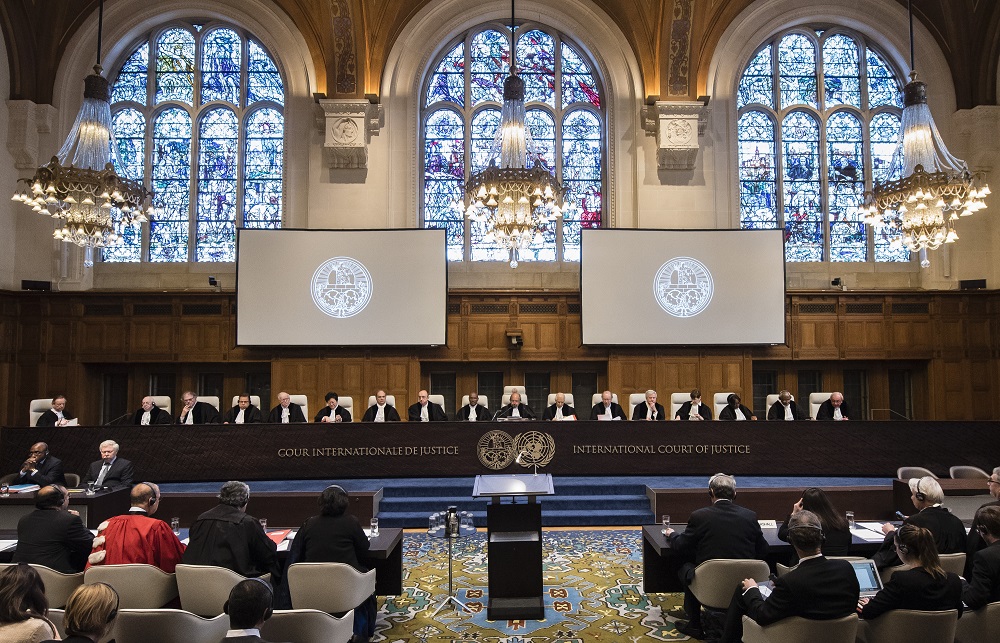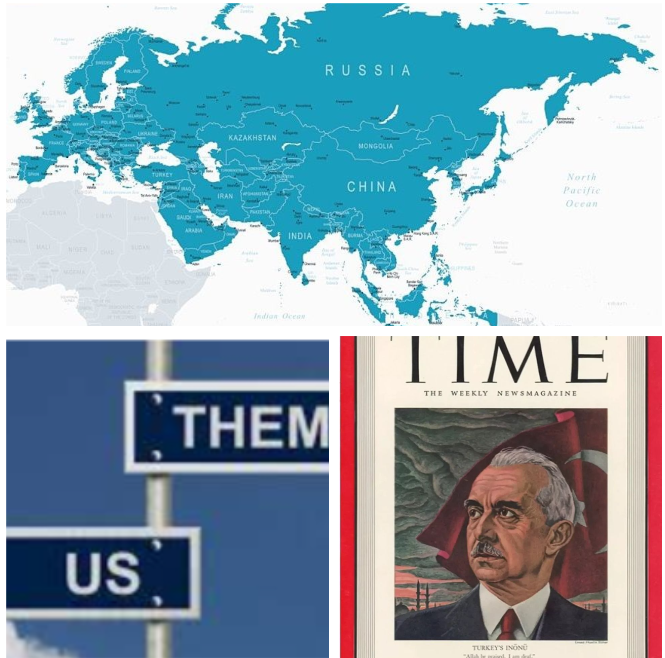
Across Eurasia, and especially among the Turkic States, societies are experiencing a dramatic rise in their elderly populations—driven by increasing longevity and declining birth rates. This demographic transformation is unfolding with unprecedented speed and scale, creating urgent challenges and opportunities for policy innovation, social cohesion, and the advancement of rights protections both regionally and internationally.
Demographic Transformation in the Turkic States
Recent data by the World Bank and WHO show the pace and depth of demographic change in the Turkic States, especially Türkiye: in 2025, over 10% of Türkiye’s population is aged 65+, a figure expected to reach 13.5% by 2030 and nearly 25% by 2050. Alongside falling birth rates and record-high median age, similar aging trends are emerging across regional partners. These developments reveal distinct vulnerabilities but also open a unique opportunity for the Turkic States to set new standards for institutional leadership in elderly rights and policy reform[1].
Socio-Economic and Rights-Based Challenges
As the Turkic States experience intensifying demographic aging, multiple socio-economic and rights-based challenges come to the fore. Without a dedicated international convention on elderly rights, national frameworks remain fragmented and insufficient. The COVID-19 pandemic dramatically exposed these legal and welfare gaps—elderly individuals endured higher rates of poverty, limited healthcare access, and age-based restrictions, all of which heightened their vulnerability in both institutional and community settings. These deficiencies highlight the urgent need for integrated rights protections and comprehensive social support, tailored to regional needs but aligned with global standards[2].
Why Turkic States Should Lead
The Turkic states' tradition of deep respect for elders, embodied in institutions such as the "aksakal" council, provides a culturally specific foundation for advancing the rights of elders. This foundation aligns with the concepts of balancing regional tradition, strategic autonomy, and active global participation that lie at the heart of AVİM's proposed "Constructive Eurasianism" approach. This fundamental approach is gradually shaping the guiding policies of the Organization of Turkic States (OTS). Policy approaches rooted in regional tradition and oriented toward international leadership are strongly reflected in the objectives of the Turkic World Vision 2040 and other OTS strategic documents. These frameworks consistently advocate for models that blend cultural heritage with proactive global participation.
The concept of balancing regional tradition, strategic autonomy, and active global engagement—central to frameworks such as 'Constructive Eurasianism'—has gradually informed the Organization of Turkic States' guiding policies. Policy approaches rooted in regional tradition and oriented toward international leadership are strongly reflected in the goals of the Turkic World Vision 2040 and other OTS strategic documents. These frameworks consistently advocate models that blend cultural heritage with proactive global engagement.
These factors uniquely position the region not only to recognize, but to champion a new normative framework for elderly rights, leveraging the OTS’s established consultative structures and shared values. Such leadership, as repeatedly emphasized at OTS summits, is both feasible and likely to impact future international standards of welfare and dignity for aging populations[3].
Policy Recommendations
To address this urgent agenda, the Organization of Turkic States should work toward establishing a unified regional framework for elderly rights, formally anchored in its already robust “resilience” and “good governance” priorities as articulated in the Turkic World Vision 2040. This process must involve the harmonization of national legal standards, the creation of consultative bodies inclusive of experts and stakeholders, and coordinated engagement with relevant international organizations to bridge global legal gaps. Taking leadership in this field would not only foster regional stability and social resilience, but also enhance the Turkic States’ standing in international institutions as advocates of rights-based, participatory governance[4].
Policy Signaling
The current demographic juncture places the Turkic States at a pivotal crossroads where coordinated action on elderly rights is no longer a choice, but a strategic necessity. By advancing a comprehensive framework that fuses cultural respect and good governance—reflecting the goals outlined in the Turkic World Vision 2040 and Türkiye’s National Action Plan—the region has the opportunity to preempt future crises and institutional challenges posed by aging populations. Timely and forward-looking initiatives will not only fortify intergenerational solidarity within our societies but also elevate the standing of the Turkic States as global leaders in humane and participatory governance. This path will deliver benefits for social resilience, democratic legitimacy, and international reputation, positioning the region at the forefront of inclusive policy innovation[5].
*Picture: Qakazistan History
[1] United Nations Population Fund, Türkiye Country Office, “Older persons thrive, countries thrive,” last modified September 30, 2025, https://turkiye.unfpa.org/en/news/older-persons-thrive-countries-thrive ; World Health Organization, “Ageing EURO,” February 9, 2022, https://www.who.int/europe/health-topics/ageing.
[2] “Bearing the brunt: The impact of COVID-19 on older people in the Eurasia and Middle East region,” HelpAge International, accessed November 3, 2025, https://www.helpage.org/silo/files/covid19-impactemesummaryenglish.pdf ; Amnesty International, “Why we need a UN Convention on the Rights of Older Persons,” accessed November 3, 2025, https://www.amnesty.org/en/wp-content/uploads/2024/07/ACT3081892024ENGLISH.pdf.
[3] Gabala Declaration of the Twelfth Summit of the Organization of Turkic States, October 7, 2025, https://turkicstates.org/u/gabala-declaration-.pdf ; “Areas of Cooperation Detail: Political Cooperation, Council of Elders (CoE),” Türk Devletleri Teşkilatı, accessed November 3, 2025, https://www.turkicstates.org/en/areas-of-cooperation-detail/1-political-cooperation.
[4] Pelin Musabay Baki, “Turkic World Vision–2040: A Step Forward for the Resilience of Turkic Cooperation,” Perceptions 27, no. 1 (2022): 37–41 ; Organization of Turkic States, “Turkic World Vision 2040,” November 12, 2021, https://www.turkicstates.org/en/news/turkic-world-vision-2040.
[5] Organization of Turkic States, “Turkic World Vision 2040,” November 12, 2021, https://www.turkicstates.org/en/news/turkic-world-vision-2040. ;“Minister Derya Yanık Announced the Ageing Vision Document and the National Action Plan on the Rights of Older Persons,” Ministry of Family and Social Services of Türkiye, April 28, 2023, https://www.aile.tr/eyhgm-en/haberler/minister-derya-yanik-announced-the-ageing-vision-document-and-the-national-action-plan-on-the-rights-of-older-persons/.
© 2009-2025 Center for Eurasian Studies (AVİM) All Rights Reserved
No comments yet.
-
 GREECE’S “CHERRY-PICKING” POLICY IN INVOKING THE RULES OF INTERNATIONAL LAW
GREECE’S “CHERRY-PICKING” POLICY IN INVOKING THE RULES OF INTERNATIONAL LAW
Teoman Ertuğrul TULUN 31.08.2020 -
 CONSTRUCTIVE EURASIANISM AND PAST REFLECTIONS
CONSTRUCTIVE EURASIANISM AND PAST REFLECTIONS
Teoman Ertuğrul TULUN 22.09.2025 -
 TÜRKİYE'S EVOLVING ROLE AS A EURASIAN NEXUS: A BALANCED PERSPECTIVE
TÜRKİYE'S EVOLVING ROLE AS A EURASIAN NEXUS: A BALANCED PERSPECTIVE
Teoman Ertuğrul TULUN 04.07.2024 -
 BLACK SEA ATTACKS ON MERCHANT VESSELS: TÜRKIYE’S EEZ, THE MONTREUX REGIME, AND THE RISK OF WAR SPILLOVER
BLACK SEA ATTACKS ON MERCHANT VESSELS: TÜRKIYE’S EEZ, THE MONTREUX REGIME, AND THE RISK OF WAR SPILLOVER
Teoman Ertuğrul TULUN 03.12.2025 -
 JOE BIDEN’S STATEMENT ON 1915 EVENTS: PURPOSEFUL POLITICAL ACTIONS MAY CAUSE UNANTICIPATED CONSEQUENCES, AN ANALYSIS FROM THE SOCIOLOGICAL VIEWPOINT
JOE BIDEN’S STATEMENT ON 1915 EVENTS: PURPOSEFUL POLITICAL ACTIONS MAY CAUSE UNANTICIPATED CONSEQUENCES, AN ANALYSIS FROM THE SOCIOLOGICAL VIEWPOINT
Teoman Ertuğrul TULUN 03.05.2021
-
 23rd ANNIVERSARY OF THE KHOJALY MASSACRE
23rd ANNIVERSARY OF THE KHOJALY MASSACRE
Cemre Dilay BOZTEPE 04.03.2015 -
 EUROPEAN COMMISSION PRESIDENT DISREGARDS DIPLOMATIC COURTESY
EUROPEAN COMMISSION PRESIDENT DISREGARDS DIPLOMATIC COURTESY
Hazel ÇAĞAN ELBİR 27.07.2021 -
THE EUROPEAN UNION AND THE CAUCASUS
Alev KILIÇ 06.12.2012 -
 THE ARMENIAN APOSTOLIC CHURCH AND THE ENCOURAGEMENT OF TERRORISM
THE ARMENIAN APOSTOLIC CHURCH AND THE ENCOURAGEMENT OF TERRORISM
AVİM 22.05.2024 -
 ARMENIA: THE TOOL OF POPULISM IN THE FRENCH ELECTIONS
ARMENIA: THE TOOL OF POPULISM IN THE FRENCH ELECTIONS
Tutku DİLAVER 07.01.2022
-
25.01.2016
THE ARMENIAN QUESTION - BASIC KNOWLEDGE AND DOCUMENTATION -
12.06.2024
THE TRUTH WILL OUT -
27.03.2023
RADİKAL ERMENİ UNSURLARCA GERÇEKLEŞTİRİLEN MEZALİMLER VE VANDALİZM -
17.03.2023
PATRIOTISM PERVERTED -
23.02.2023
MEN ARE LIKE THAT -
03.02.2023
BAKÜ-TİFLİS-CEYHAN BORU HATTININ YAŞANAN TARİHİ -
16.12.2022
INTERNATIONAL SCHOLARS ON THE EVENTS OF 1915 -
07.12.2022
FAKE PHOTOS AND THE ARMENIAN PROPAGANDA -
07.12.2022
ERMENİ PROPAGANDASI VE SAHTE RESİMLER -
01.01.2022
A Letter From Japan - Strategically Mum: The Silence of the Armenians -
01.01.2022
Japonya'dan Bir Mektup - Stratejik Suskunluk: Ermenilerin Sessizliği -
03.06.2020
Anastas Mikoyan: Confessions of an Armenian Bolshevik -
08.04.2020
Sovyet Sonrası Ukrayna’da Devlet, Toplum ve Siyaset - Değişen Dinamikler, Dönüşen Kimlikler -
12.06.2018
Ermeni Sorunuyla İlgili İngiliz Belgeleri (1912-1923) - British Documents on Armenian Question (1912-1923) -
02.12.2016
Turkish-Russian Academics: A Historical Study on the Caucasus -
01.07.2016
Gürcistan'daki Müslüman Topluluklar: Azınlık Hakları, Kimlik, Siyaset -
10.03.2016
Armenian Diaspora: Diaspora, State and the Imagination of the Republic of Armenia -
24.01.2016
ERMENİ SORUNU - TEMEL BİLGİ VE BELGELER (2. BASKI)
-
AVİM Conference Hall 24.01.2023
CONFERENCE TITLED “HUNGARY’S PERSPECTIVES ON THE TURKIC WORLD"









